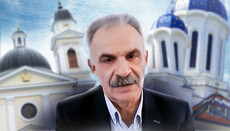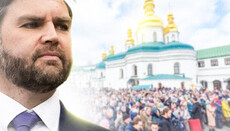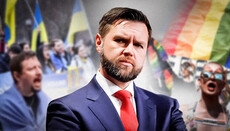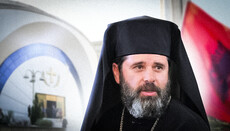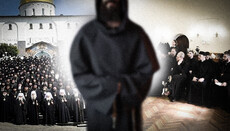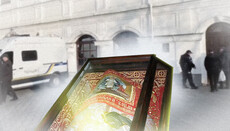Tomos trafficking continues: possible implications
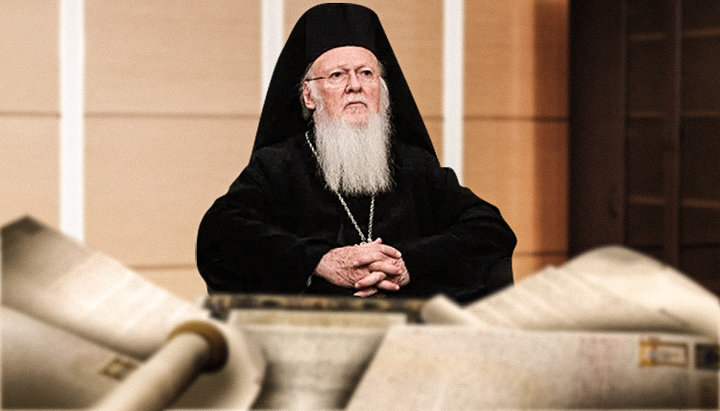
Will the Macedonian and Montenegrin schismatics get autocephaly from Phanar and how will it threaten World Orthodoxy?
Judging by media reports, the process of granting autocephaly to the schismatics in Northern Macedonia and Montenegro is underway. Who is next in turn and how can all these developments affect the fate of Orthodoxy?
In 2018, shortly after Easter, the then President of Ukraine Petro Poroshenko came to Phanar and agreed on the Tomos to be granted to the Ukrainian breakaway groups. This case was accompanied by scandalous leaks in the media about how much cash he’d paid for the document. Anyway, despite the active protests of both the Russian and Ukrainian Orthodox Churches, Poroshenko managed to receive the Tomos.
In 2020, shortly after Christmas, namely on January 13, the former and current prime ministers of the state of Northern Macedonia, Zoran Zaev and Oliver Spasovski, came to Phanar.
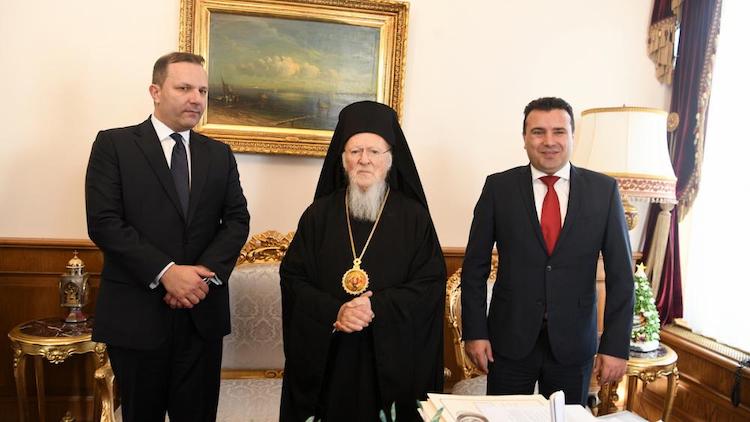
They arrived to agree on exactly the same thing – the bestowal of the Tomos. The Macedonian Tomos, like the Ukrainian one, was accompanied by a financial scandal. According to some media reports, in the summer of 2019, the Macedonian prime minister said he was ready to deliver a considerable amount of cash to Phanar. Apparently, they made an agreement and are going to receive the Tomos in the same way as Petro Poroshenko.
“The Ecumenical Patriarchate officially confirmed that it did not give up the desire to resolve the issue of autocephaly of the Macedonian Orthodox Church despite the opposition of the Serbian and Russian Orthodox Churches,” the Macedonian online publication Religija reported.
The Macedonian Prime Minister was very pleased with the results of the negotiations with Patriarch Bartholomew and said at the end, “I hope that the Ecumenical Patriarch will continue to promote dialogue in the spirit of tolerance and understanding in order to find solutions to the problems facing Orthodox believers. <...> Within the framework of the Ecumenical Patriarchate, a dynamic dialogue will be launched in order to overcome the problems of the Macedonian Orthodox Church.”
How Phanar “overcomes” the problems of schismatic denominations is exemplified by Ukraine.
Next in line for the Tomos is Montenegro. The head of the local schismatics, "metropolitan" Mikhail Dedeic, is confident that he will soon be with the Tomos too.
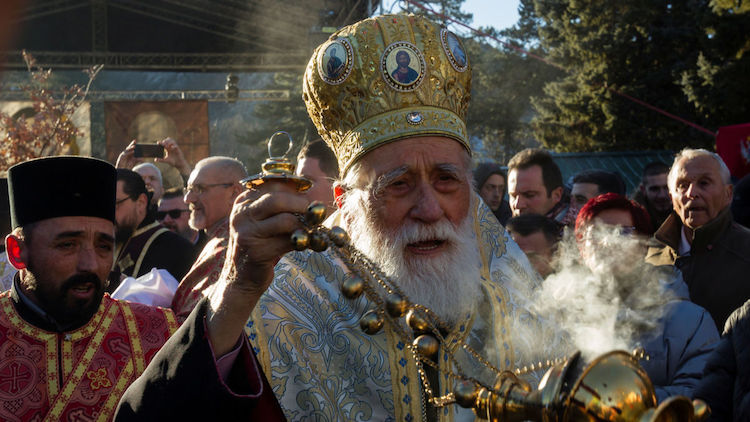
He recently stated, “Patriarch Bartholomew of Constantinople, whose priest I used to be, said that he would study the history of the Balkans and that other Orthodox Churches should be given autocephaly; this concerns the Montenegrin Orthodox Church and the Macedonian Orthodox Church.”
Of course, everyone understands that this "autocephaly" will be modeled after the "autocephaly" of the Orthodox Church of Ukraine (OCU), i.e. not real autocephaly, but rather subordination to Phanar.
In fact, the OCU has less independence than the Ukrainian Orthodox Church with the status of autonomy.
It means Phanar gets bigger at the expense of such schismatic religious organizations that are willing to be subordinate to Constantinople and even pay money for it. The process has begun, and now any state, on whose territory there are some religious structures that call themselves Orthodox, can appeal to Phanar for Tomos. Those willing can be found in the canonical territory of the Church of Antioch, Jerusalem, and some others.
In addition, Phanar’s recent raider seizure of the Church of Czech Lands and Slovakia shows the desire of Constantinople to subjugate not only schismatic formations, but also entire Local Churches.
All this means that Phanar deliberately burns the last bridges along which it was still possible to return to the Orthodox unity that used to exist between the Local Churches before the creation of the OCU.
Phanar gets bigger at the expense of such schismatic religious organizations that are willing to be subordinate to Constantinople and even pay money for it.
In response to the recognition of the Ukrainian schismatics, the Russian Orthodox Church broke the Eucharistic communion with Phanar. What will the Serbian Orthodox Church do in response to the recognition of the Macedonian and Montenegrin schismatics? With a high degree of probability it can be assumed it will do the same thing.
Thus, before our own eyes, two, let’s say, groups of Orthodox Churches are being formed that do not have Eucharistic communion with each other. However, we recall: "I believe in ONE, Holy, Catholic and Apostolic Church." And every Orthodox Christian will have to find the answer to the question where the true Church is, if, of course, being in the Church to them is the key to saving their souls and not just a beautiful ritual. Some reflections on this issue can be found in articles under the general title “Church and Simulacrum”.
If our assumptions come true and Patriarch Bartholomew grants (sells) the Tomos letters to Montenegro and Northern Macedonia, and the Serbian Church breaks the Eucharistic communion with Phanar, then a situation will arise when one of the groups mentioned above will consist of the Russian and Serbian Churches, while the other – of Constantinople, as well as Greece and Alexandria, i.e. those Local Churches that agreed to recognize the supremacy of Phanar by having recognized the OCU.
As for the rest of the Local Churches, we have already assumed that they can take their time to make their choice for a couple of years, but then, on the eve of the 1700th anniversary of the First Ecumenical Council in 2025 and the imminent union between Rome and Constantinople, they will have to make up their mind which group they are with – with Phanar, leading its adherents to unity with the Latins, or with Orthodoxy, which rejects any communion with heretics.
How are the above groups – let's call them conventionally Phanarodox and Orthodox – going to develop?
Before our own eyes, two, let’s say, groups of Orthodox Churches are being formed that do not have Eucharistic communion with each other.
The main feature of “Phanarodox” group is its readiness for concessions to the powerful and secular authorities. The US Department of State employees would push for the creation of the OCU at all levels even not hiding their intentions and then, together with representatives of the Greek government, pushed for recognition of the OCU by the Churches of Greece and Alexandria.
The second feature of this group is the recognition of the power of Phanar. Statements that only the Patriarch of Constantinople can convene pan-Orthodox meetings, grant autocephaly, act as the judge of last resort, etc. are heard regularly from representatives of Phanarodox group.
The third trait is liberalism regarding ecclesiastic dogmas and rules. As one character of the famous Soviet comedy would say, "one needs to approach people more softly and to approach questions more comprehensively." In the framework of this liberalism, Phanar:
- introduced bigamy for clergy;
- recognized schismatics without repentance;
- declares the possibility of having communion with Catholics with significant dogmatic differences.
It is exactly the liberal approach that makes it possible to declare unity with other Christian denominations despite different views on the dogmas of the Church. Consequently, God-revealed truths, church canons, and moral standards can be relegated to the background for the sake of this notorious unity. The main point is the unity and love of all with everyone.
Unity is surely good, but it is necessary to unite around the Truth and not around falsehood.
By and large, the development path of the Phanarodox group is unity with the Latins and possibly with other denominations alongside liberalization of church life.
The Orthodox group is actually facing difficult times.
Firstly, it will suffer from the anti-canonical actions of the counterpart group. The persecution of the UOC in Ukraine, as well as the believers of the Serbian Orthodox Church in Montenegro and Northern Macedonia, will continue in one form or another. Perhaps, other regions will join them. The Orthodox are already deprived of the right to have their own name, temples and church property are taken from them, and they are virtually outlawed.
But at the same time, due to the lack of Eucharistic communion with “Phanarodox” group, opportunities for development in those regions of the planet, where this development was previously hindered by the Patriarchate of Constantinople, are also opening up for Orthodoxy. Today, the Russian Orthodox Church already has the opportunity, without regard to Phanar and Alexandria, to open its parishes in Turkey, the countries of Asia and Africa. Undoubtedly, the number of such parishes will grow.
Another positive point is that at the backdrop of liberalism and ecumenism of Phanarodox group, the Orthodox will have to swing the opposite way – towards a more responsible attitude to the dogmas and canons of the Church. Against the background of Patriarch Bartholomew's curtsy towards the Vatican, it is difficult to imagine that Patriarch Kirill of Moscow will do the same. The meeting between the Primate of the Russian Orthodox Church and the Head of the Vatican at Havana Airport in 2016 did not resemble in the slightest the fraternity and joint prayers that took place between Patriarch Bartholomew and Pope Francis. However, the Havana meeting was subjected to very harsh criticism. Now the position of the Russian Orthodox Church in relations with the Vatican will have to become more conservative.
Due to the lack of Eucharistic communion with “Phanarodox” group, opportunities for development in those regions of the planet, where this development was previously hindered by the Patriarchate of Constantinople, are also opening up for Orthodoxy.
It can also be assumed that the Churches that chose to remain truuly Orthodox will take a tougher stance regarding the outcome of the Cretan Council in 2016, which not only assigns the term “Church” to Catholics, but also vests the Patriarchate of Constantinople with exclusive rights in the Orthodox Church, thereby implementing the concept of “first without equal”.
The Russian Orthodox Church fully experienced the essence of Phanar’s “exclusive rights”.
But the most encouraging thing for this Orthodox group of Churches, for the entire episcopate, clergy and believing people is the awareness that we are in the true Church of Christ. As His Beatitude Metropolitan Onuphry said at the diocesan gatherings in December 2019: “Beloved in Christ metropolitans and bishops, fathers, matushkas, brothers and sisters! Do not be afraid, because we live in the true faith, we are in the Church founded by Christ, not by people.”
